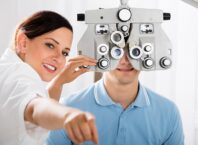Table of Contents
If you see signs of bipolar in your life or the life of someone you love, treat them seriously. It’s not a made-up condition. And it’s not an indication of poor character.
Bipolar disorder affects the mind and can play out in some dangerous ways, including manic episodes. In the following article, we’ll be discussing its symptoms, particularly as they relate to these extreme situations.
Let’s begin.

The Most Common Symptoms of Bipolar Disorder
Bipolar disorder can be present without being diagnosed. In these cases, the symptoms usually appear in mild degrees and can be controlled without the need for special medications.
There also is a milder form of bipolar disorder known as cyclothymia. This consists of milder manifestations of depression and common symptoms like the following:
- Mood swings
- Oversleeping
- Sluggishness
- Feelings of sadness or hopelessness
Moving onto the official diagnoses, bipolar I and bipolar II can lead to manic episodes. These certainly represent an upgrade in severity. But it’s bipolar I where the mania tends to be more pronounced.
When Mania Is Present
Mania is not to be mixed up with the milder hypomania often found in bipolar II patients. While hypomania can progress into the more severe form, it doesn’t pose as much of a threat to one’s daily activities. You can experience hypomania and still take part in activities such as:
- Work
- School
- Social outings
- Relationship interactions
But all of these go out the window for the bipolar patient in the midst of a manic episode. Of the many bipolar disorder symptoms patients have to deal with, this can be the scariest for both the person having it and those who spend time with them. It plays out like this.
1. Long Emotional Peaks and Valleys
Perhaps the most instantly recognizable of the symptoms of bipolar disorder, this includes being on “high highs” and “low lows” for extended periods of time. It can manifest in ways that seem positive on the surface.
However, it quickly “reveals” itself the longer it goes. It can be difficult for the bipolar patient to notice from the inside. But individuals who don’t have the condition can judge against their own frame of reference.
Is what’s making the bipolar person happy or sad or angry really worth the reaction? What’s the extent of that reaction? Are they growing violent or self-destructive as a result of it?
These long emotional peaks and valleys are telltale signs of a manic episode. They require immediate medical attention because of some of the other items on this list to which they might lead.
2. Short Attention Span
This sign probably isn’t one you’ll want to use for answering the question of how to tell if someone is bipolar. That’s because most people have short attention spans these days. That doesn’t mean they’re all bipolar.
That said, it’s something to be mindful of when trying to determine whether someone you know and love is experiencing a manic episode. If they’re getting sidetracked on conversations or tasks, be mindful of it. Combining this with the other signs of mania can indicate that professional help is necessary.
3. Dangerous Risk Taking
Another indication of a manic episode in bipolar patients is their inability to assess risk or properly care about it. Mania might lead to poor decisions like the following:
- Drinking and driving
- Unprotected or ill-advised sexual activity
- Engaging in combative behavior with others (strangers and even family members or friends)
- Horseplay with weapons
Anytime you see a person in your life with bipolar disorder engaging in activities you know they’d never do when properly medicated, try convincing them to seek help. They’re beyond the stages of common symptoms.
4. Delusions of Grandeur
Manic episodes for bipolar patients also can take the form of heightened self-confidence. They’re more braggadocious or overconfident in their own abilities.
This particular symptom mixes poorly with No. 3 as well. That is, it can lead to them taking unwarranted and often dangerous risks. Doing so might lead to a variety of unhealthy outcomes:
- Loss of job or reputation
- Ruined relationships and friendships
- Risk of injury or even death
Since bipolar disorder isn’t noticeable to the naked eye, it’s often difficult for the patient to “come back” from manic episodes that play out in a public setting. Even non-fatal damages can be irreparable.
5. Issues with Sleep
In many cases, too much sleep is a problem for individuals with bipolar disorder. They can experience trouble “getting started.” As a result, they oversleep.
During manic episodes, the opposite often is true. They require less sleep than normal. They keep odd hours.
All-nighters aren’t out of the question. Neither are other harmful behaviors on top of that.
If you know someone living with bipolar disorder, queue this up as a warning sign. And if you have bipolar disorder and are experiencing dramatic shifts in your sleep patterns, try recognizing this as a sign of a possible manic episode.
6. Impulsiveness
Another sign of mania as it relates to bipolar disorder is impulsive behavior. It can start harmlessly enough. Maybe you have a hard time deciding what you’re going to do with your evening and drive around aimlessly looking for something to fill the time.
It can grow into something more alarming, however. Examples:
- Initiating conflict in close working or familial relationships
- Erratic driving
- Rash financial decisions
- Gambling away paychecks
Watch out for friends or family members with bipolar disorder, especially when exhibiting any of these signs.
7. No ‘Off’ Button
One final sign of a possible manic episode in bipolar patients is the inability to stop whatever they’re doing. They can’t turn off their brains long enough to sleep. They can’t stop drinking.
You name the behavior. There’s no shut-off valve for it.
Address the Manic Signs of Bipolar Disorder
The manic signs of bipolar disorder require immediate intervention. Otherwise, they can forever alter the course of one’s personal and professional life. You can live a fulfilling life with bipolar disorder, but only if you’re able to notice and address the issues when they arise. Contact us today if you or someone you love has been experiencing the above signs and symptoms.















